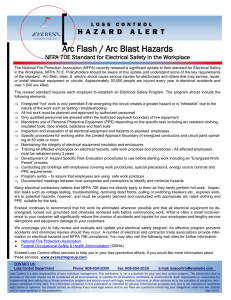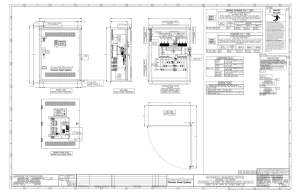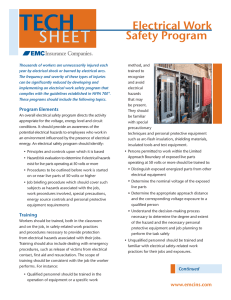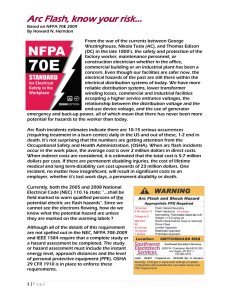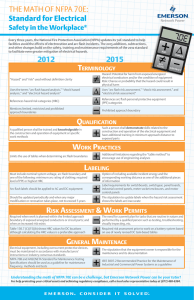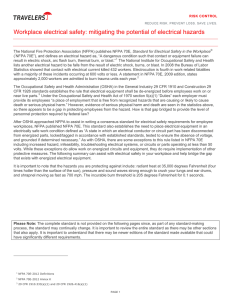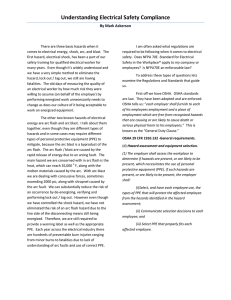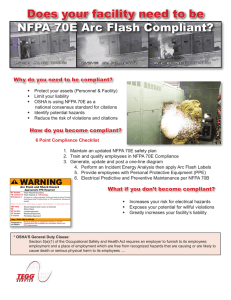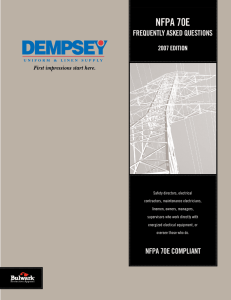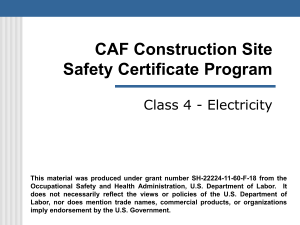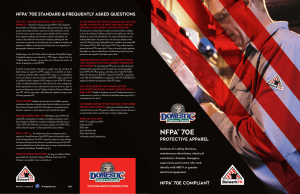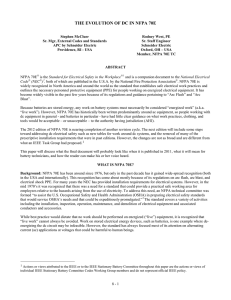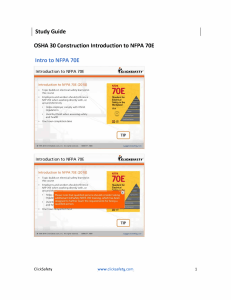May 22, 2012 Everest National Policy Number: Re: Arc Flash / Arc
advertisement
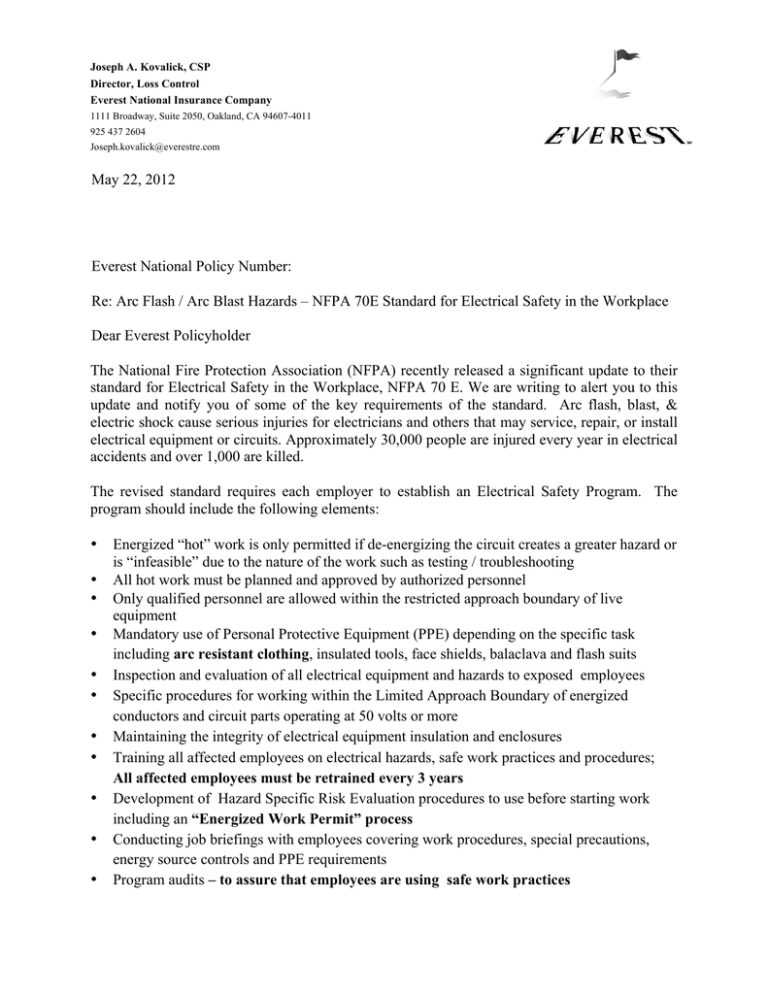
Joseph A. Kovalick, CSP Director, Loss Control Everest National Insurance Company 1111 Broadway, Suite 2050, Oakland, CA 94607-4011 925 437 2604 Joseph.kovalick@everestre.com May 22, 2012 Everest National Policy Number: Re: Arc Flash / Arc Blast Hazards – NFPA 70E Standard for Electrical Safety in the Workplace Dear Everest Policyholder The National Fire Protection Association (NFPA) recently released a significant update to their standard for Electrical Safety in the Workplace, NFPA 70 E. We are writing to alert you to this update and notify you of some of the key requirements of the standard. Arc flash, blast, & electric shock cause serious injuries for electricians and others that may service, repair, or install electrical equipment or circuits. Approximately 30,000 people are injured every year in electrical accidents and over 1,000 are killed. The revised standard requires each employer to establish an Electrical Safety Program. The program should include the following elements: • • • • • • • • • • • Energized “hot” work is only permitted if de-energizing the circuit creates a greater hazard or is “infeasible” due to the nature of the work such as testing / troubleshooting All hot work must be planned and approved by authorized personnel Only qualified personnel are allowed within the restricted approach boundary of live equipment Mandatory use of Personal Protective Equipment (PPE) depending on the specific task including arc resistant clothing, insulated tools, face shields, balaclava and flash suits Inspection and evaluation of all electrical equipment and hazards to exposed employees Specific procedures for working within the Limited Approach Boundary of energized conductors and circuit parts operating at 50 volts or more Maintaining the integrity of electrical equipment insulation and enclosures Training all affected employees on electrical hazards, safe work practices and procedures; All affected employees must be retrained every 3 years Development of Hazard Specific Risk Evaluation procedures to use before starting work including an “Energized Work Permit” process Conducting job briefings with employees covering work procedures, special precautions, energy source controls and PPE requirements Program audits – to assure that employees are using safe work practices • Documented meetings between host companies and contractors to identify and minimize hazards Many electrical contractors believe that NFPA 70E does not directly apply to them as they rarely perform hot work. Inspection tasks such as voltage testing, troubleshooting, removing dead fronts, pulling or switching breakers etc, exposes workers to potential hazards, however, and must be properly planned and conducted with appropriate arc rated clothing and PPE suitable for the task. Everest continues to recommend that hot work be eliminated wherever possible and that all electrical equipment be de-energized, locked out, grounded and otherwise rendered safe before commencing work. What is often a small inconvenience to your customer will significantly reduce the chance of accidents and injuries for your employees and lengthy service disruptions and equipment damage to your customers. We encourage you to fully review and evaluate and update your electrical safety program. An effective program prevents accidents and minimizes injuries should they occur. A number of electrical and contractor trade associations provide information on electrical hazards and NFPA 70E compliance. You may also visit the following web sites for further information: National Fire Protection Association http://www.nfpa.org/ Federal Occupational Safety & Health Administration http://www.osha.gov/ We hope you find this information useful. Everest Loss Control offers a host of value-added services and information to support your loss prevention efforts. These include publications such as Loss Control Alerts, newsletters, model programs and links to many valuable risk management resources. Please visit our web site at http://www.everestregroup/losscontrol.com to review them. Should you have any questions regarding the information contained in this letter or any other services we provide, please call either your broker or me at 925-437-2604. Sincerely, Joseph Kovalick Joe Kovalick, CSP By making loss control visit(s), recommendations and/or suggestions, Everest National Insurance Company has not and does not undertake or assume any duty to you or anyone else, including but not limited to: A) Identifying or reporting upon each and every possible or significant hazard at your premises; B) Managing, controlling, or correcting any hazard; or C) Enforcing compliance with any local, state, or federal safety or health law. Our recommendations/suggestions may not address every possible loss potential, code violation, or exception to good practice nor will compliance with any submitted recommendations/suggestions guarantee the fulfillment of your obligations as required by any local, state, or federal laws. Loss Control is a daily responsibility of your management. You are urged to implement and maintain your own safety and risk management programs.
